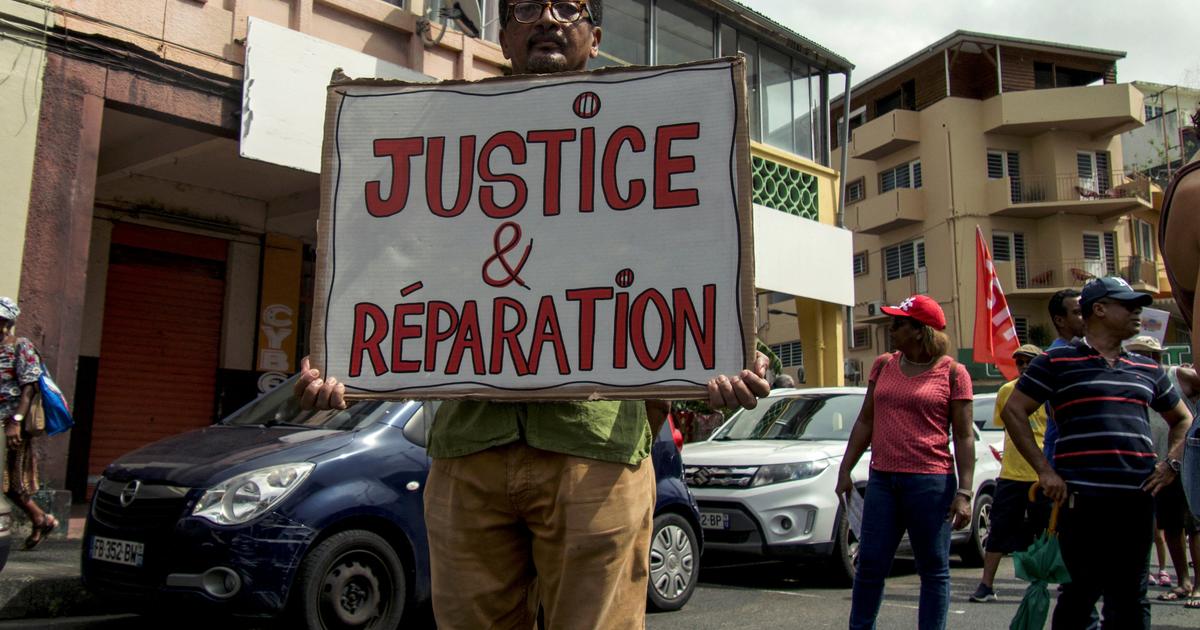The National Assembly adopted on Thursday at first reading a bill symbolically recognizing the
“responsibility”
of the State in the ravages of chlordecone, a pesticide used in the West Indies until 1993 despite warnings about its harmfulness.
The text carried by the deputy for Guadeloupe, Elie Califer, was voted unanimously by the 101 voters, the majority groups having abstained, and will continue its parliamentary journey in the Senate.
This vote
“is a victory for national representation, a victory for the Republic of fraternity”
, welcomed Elie Califer in the hemicycle at the end of the debates:
“We have done work that our territories will watch”
.
The bill provides that the
“French Republic recognizes its responsibility for the health, moral, ecological and economic damage”
caused by the use of this pesticide in Martinique and Guadeloupe.
France must have the objective of
“decontaminating the land”
and
“compensating all victims of this contamination, whether or not they took place in the context of a professional activity
,” the text continues.
Left-wing amendments added
Several amendments brought by the GDR groups (with a communist majority), LFI or Ecologists were however added, sometimes against the opinion of Elie Califer.
The text thus establishes that the French Republic must recognize the
“moral”
damage of the scandal, a mention which did not appear in the initial version.
An amendment was also adopted aimed at
“establishing a prevention campaign throughout the national territory”
.
France also sets itself
"the objective of publicly establishing the responsibility of political decision-makers in this state scandal"
, an expression which has provoked fierce debate.
“We must not want to go in all directions”
, regretted the Minister Delegate for Health, Frédéric Valletoux, the Macronist MP Charlotte Parmentier-Lecocq recalling that the facts date back
“more than 30 years”
and saying she feared a hunt to witches.
A shared responsibility for the Macronists
Chlordecone, a pesticide used in banana plantations to combat the weevil, was banned in the United States in 1975, but remained authorized in France until 1990, and even until 1993 - fifteen years after the first alerts of the weevil. WHO - in the Antilles, where it benefited from an exemption.
Several elected officials also highlighted the prevalence of diseases such as prostate cancer.
An amendment provides for the establishment of systematic screening for prostate cancer from the age of 45 for the populations of Guadeloupe and Martinique.
The Macronist deputies, very reserved, had withdrawn before the session an amendment aimed at replacing the idea of
“responsibility”
of the State with
“its share of responsibility in the extent of the damage”
.
During the debates, Charlotte Parmentier-Lecocq estimated that there was
"no ambiguity"
as to the State's
"share of responsibility"
, but that
"other responsibilities were at work"
, those farm owners or local elected officials of the time.
In Martinique, activists await a “reparation” program
Another amendment, establishing the creation of an
“independent body”
to evaluate depollution and population protection actions, with the submission of a report no later than the end of 2025, was adopted.
For MoDem Maud Petit, whose group abstained due to the
“incoherent”
changes made, the responsibilities are
“simultaneously scientific, economic and political”
.
“Unfortunately, the debates took place in such a way that I have the impression that we have sometimes erected gallows
,” added LR Philippe Juvin.
In the Antilles, where the dismissal pronounced in January 2023 by two Parisian investigating judges investigating the scandal had caused a lot of bitterness, the vote was closely scrutinized.
The collective “Lyannaj pou dépoliyé Gwadloup
”
(Alliance for the depollution of Guadeloupe) particularly regretted a text which did not go far enough, in particular by not involving the producers of the time.
“We are in favor, of course, of recognizing the responsibility of the State”
, underlines Laurence Maquiaba, member of this collective,
“but we cannot consider that the State is solely responsible, the polluters must also be concerned »
.
In Martinique too, activists expect more.
For Philippe Pierre-Charles, spokesperson for the collective “Matinik doubout, gaoulé kont chlordécone” (Martinique standing – revolt against chlordecone), this recognition is
“a significant element” but must open the door to a
“reparation”
program.
.
“And there, this is not yet what is clearly put on the table
,” he regrets.

